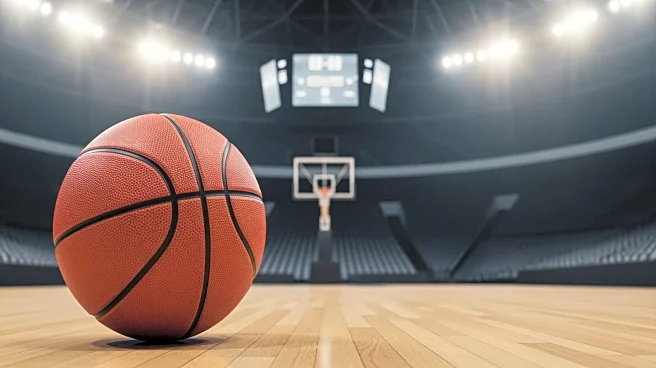What's Happening?
Northeastern University's men's hockey team has signed Mack Welby, an 11-year-old boy from Needham, Massachusetts, as part of Team Impact. Mack, who lives with cerebral palsy, is a passionate hockey fan and expressed his excitement about joining the team, calling it an 'honor.' Team Impact is a nonprofit organization that connects children facing serious and chronic illnesses with college athletic teams, fostering relationships and providing support. This initiative aims to improve the quality of life for these children through sports and community engagement. Mack's inclusion in the Northeastern Huskies is a testament to the team's commitment to community involvement and support for youth facing health challenges.
Why It's Important?
The signing of Mack Welby by Northeastern's men's hockey team highlights the positive impact of sports on community and individual well-being. It underscores the role of college athletics in fostering inclusivity and support for children with health challenges. This initiative not only benefits Mack by providing him with a sense of belonging and encouragement but also enriches the team by promoting values of empathy and social responsibility. Programs like Team Impact demonstrate how sports can transcend competition and serve as a platform for social good, potentially inspiring other teams and institutions to adopt similar practices.
What's Next?
Mack Welby will continue to engage with the Northeastern Huskies, participating in team activities and events. This partnership is expected to provide Mack with ongoing support and opportunities to interact with team members, enhancing his experience and connection to the sport he loves. The Northeastern Huskies may also look to expand their involvement with Team Impact, potentially signing more children facing health challenges, thereby strengthening their community ties and commitment to social responsibility.
Beyond the Headlines
This story reflects broader societal efforts to integrate individuals with disabilities into mainstream activities, promoting inclusivity and acceptance. It highlights the ethical dimension of sports as a tool for social change, encouraging other organizations to consider how they can contribute to community welfare. The long-term impact of such initiatives may lead to increased awareness and support for children with disabilities, fostering a more inclusive society.










